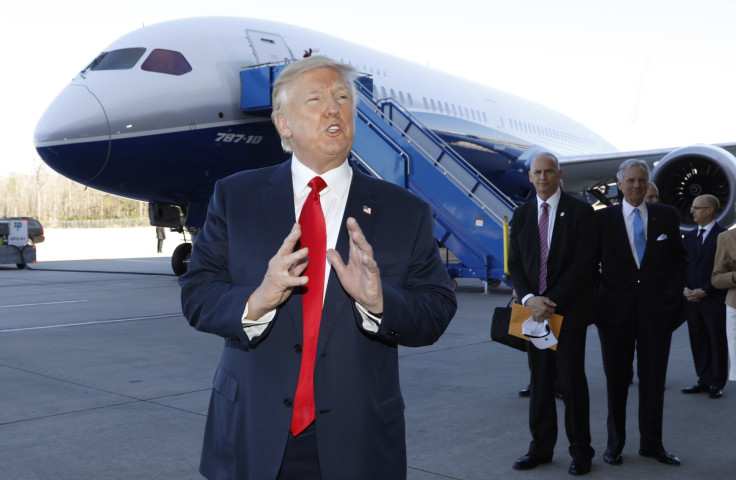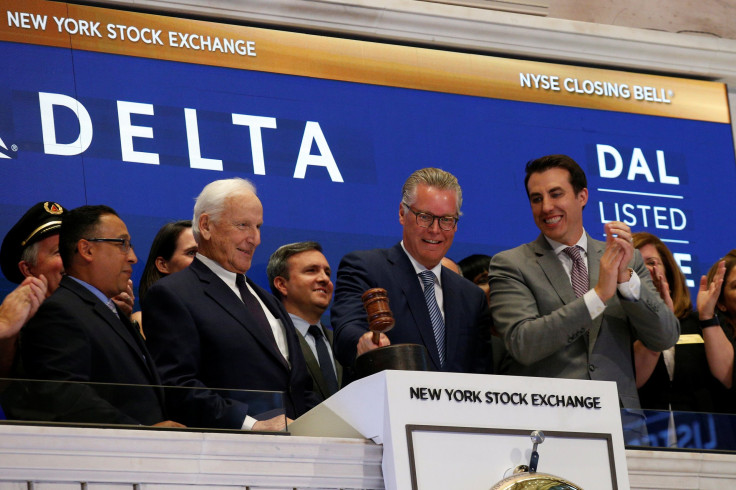Trump's Plan For Air Travel Allows Airlines and Wall Street to Take Over The Skies

President Donald Trump announced a plan to privatize the nation’s air traffic control system on Monday, in an effort to improve airlines’ efficiency and service. Trump's plan would take control of the nation’s airspace from the Federal Aviation Administration (FAA) and give it to the airline industry — and its Wall Street backers.
Under the administration’s plan, which uses a 2016 bill introduced by House Transportation Committee Chairman Bill Shuster, R-PA, as a model, U.S. air traffic control would be put under the administration of an independent non-profit corporate entity. According to the administration, that entity will be governed by a board of directors that will represent “all users of the National Airspace System” — but a closer look at Rep. Shuster’s bill reveals the board could easily come under the control of the major U.S. airlines, which have spent millions lobbying the government to privatize the nation’s airspace at the same time they have consolidated carriers, raised prices (despite lower fuel costs) and dealt with a steady stream of viral incidents involving poor customer service.
Today, the four largest U.S. airlines — American, Delta, United and Southwest — control 80 percent of domestic capacity. Those four airlines, and a trade group representing three of them, spent $8.4 million in 2017 alone on lobbying. Those airlines could soon be in position to decide how the nation regulates its airspace.
Under Rep. Shuster’s bill, the corporation would be led by an eleven-member board of directors. That board would consist of a CEO, whom the board would hire, two directors appointed by the secretary of transportation, four directors nominated by the airline industry, two directors nominated by the organization representing non-commercial and recreational aircraft operators, one director nominated by the pilots unions, and one director nominated by the air traffic controller unions.

In total, that would give the airlines four seats on the 11-member board, with two seats decided by the White House. Given the current administration’s embrace of big business and its leaders, a six-seat control of the board by the airline industry, which would give that bloc the power to hire a CEO, seems likely.
“This would give the airlines nearly limitless power to raise taxes and fees on consumers without any congressional oversight or public accountability,” a leaders of a coalition of citizen’s interest groups wrote in an op-ed in The Hill published at the end of April. “In addition to likelihood of new fees and taxes, access to airports and gates for general aviation and low cost competitors would be driven by the airlines’ priorities over the common interests of the public who have invested tens of billions into the system.”
North American airlines delivered the strongest financial performances of any global region in 2016, according to the International Air Transport Association. Despite this financial success, which stands in sharp contrast to the bankruptcies and government bailouts of the previous decade, airfares have remained high, and many have blamed Wall Street’s involvement in the industry, which for years avoided investing in the airlines.
But that era is over and institutional investors in particular have made big bets on the industry — while demanding profits go to shareholders, not employees. Wall Street’s move into the industry has raised concerns among regulators about possible antitrust violations since the largest institutional investors, like Blackrock and Vanguard, own parts of all four airlines and thus have an incentive for airfares to remain high across the major carriers. A recent study found that as institutional investors accumulated large shares in the four major U.S. airlines, fares on the exact same routes increased between three and 11 percent.
© Copyright IBTimes 2024. All rights reserved.






















